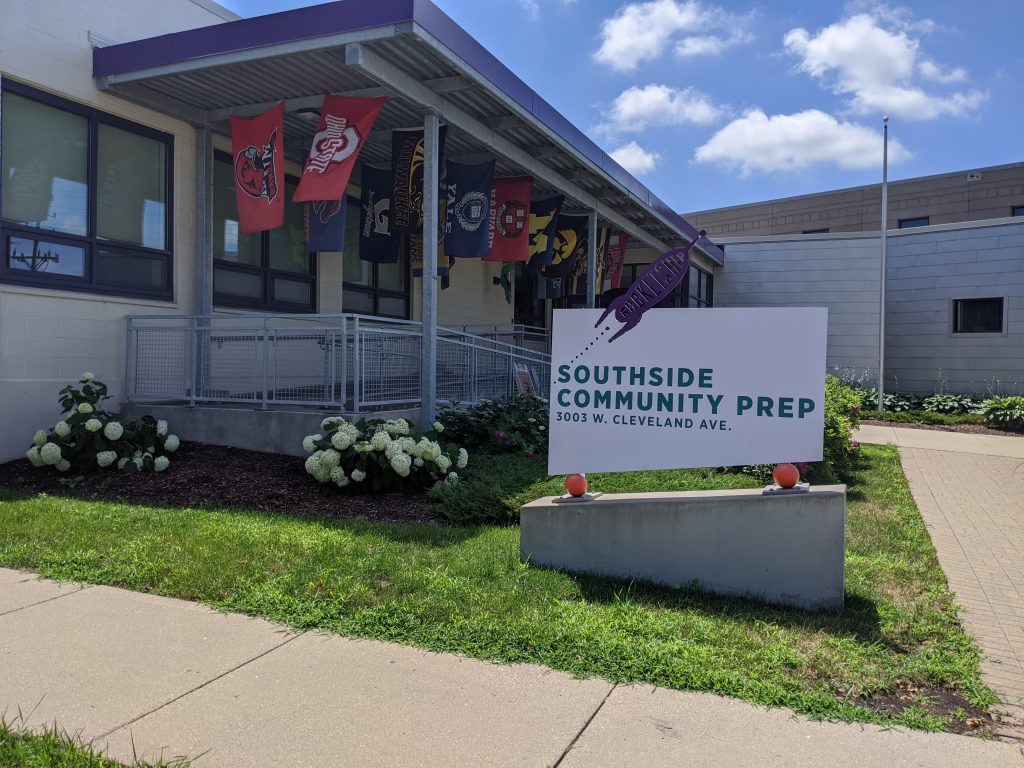More Special Education Funding Is Needed
State covers only 33% of the costs. That must be increased.
What if you paid only 33 percent of your utility bill, every month? It won’t be long before they shut off your power. You get what you pay for, after all. But despite only receiving funding to cover 33 percent of the cost to serve students with special needs, public schools across Wisconsin are legally required to continue providing special education services.
Governor Tony Evers fought to increase all public school spending this legislative cycle and made massive gains for teachers and schools everywhere. But special education funding was once again left behind – increasing only three percentage points, from covering 30% to covering just 33% of costs. We must do more. Our students with special needs deserve to attend public schools that are equipped to serve all students with excellence.
I should know – I was a child with special needs. Though my Individualized Education Plan (IEP) was for a ‘mild’ speech disability, if I had not received special education services, I would have been held back from realizing my full potential. Instead, I was holistically supported and ended up leaving my IEP behind by third grade. Becoming the first in my family to attend college and leave my low-income housing, I graduated from Princeton University and today am finishing up a doctorate in educational leadership from New York University. As a low-income, Black and Latino kid from a rough neighborhood, my speech disability could have been one barrier too many for me to overcome. But I was supported and invested in, so I could make a better future for myself and my family. Speech therapy unlocked my ability to discover and to strengthen my voice.
I’m not even close to the only story like this. I’ve been in education for 15 years and currently serve as the Executive Director of Rocketship Public Schools Wisconsin, a nonprofit public charter school network in Milwaukee. I’ve seen so many students either succeed or fail based upon the special education supports they receive. I think of a second grader at Rocketship Southside Community Prep who learned indispensable self-calming strategies, as well as pragmatic speech skills, to initiate and sustain productive conversations with his peers. I think of a third grader at Rocketship Transformation Prep, who after multiple behavioral incidents, was able to name her mistakes, explain the root of the mistake, and design an alternative response if the situation came up in the future – all because of the strategic behavioral intervention, co-teaching, and deep family partnership our special education team put in place.
At Rocketship, we utilize a “meaningful inclusion” model where students with special needs remain in class with the general population for at least 80 percent of their day. The goal is for all students to get the same rigorous instruction in the same setting, creating community and avoiding stigma for students who need additional services. Those with special needs also have individualized or small group support from our robust team of trained specialists – including occupational therapists, paraeducators, and counselors.
But these supports do not come cheap. As the Milwaukee Journal Sentinel reported, budgeting for special education is an issue at public schools across the state. “Most districts had to pull between $1,000 and $2,000 in regular education funding per student to cover special education services that were not reimbursed by state and federal special education funding streams.” At Rocketship Wisconsin, we are currently spending roughly an additional $3,000 per student more than what the state provides to give our students with special needs the excellent education they deserve.
This cost really adds up – especially at higher poverty school districts, where there tends to be even more students with special needs than in lower poverty districts. Milwaukee Public Schools has 83 percent economically disadvantaged students and 19 percent of all students are classified as having a disability. At Rocketship Wisconsin, 85 percent of our students are classified as economically disadvantaged, and 22 percent have special needs. Every year, we are spending nearly half a million dollars out-of-pocket to properly support our students with special needs.
We are extremely proud to serve all students and run a robust, high-quality special education program. It is core to who we are as an organization focused on educational equity. But the lack of funding for these services means that there are trade-offs in what we can offer our students and how much we have to fundraise to cover the gap.
Our children deserve better. We must invest in fully funding special education so that all students with special needs get the education they deserve, and have a chance at a future where they are independent learners who can contribute to our world. How many of our children with special needs are left on the sidelines, relegated to the margins of our society instead of welcomed into the center? I hope that next legislative session our lawmakers will continue working to prioritize equitable education funding for all our children in Wisconsin.
Kadeem Gill is the Executive Director of Rocketship Wisconsin, a nonprofit public charter school network serving the Milwaukee area.
Op-Ed
-
Wisconsin Candidates Decry Money in Politics, Plan to Raise Tons of It
 Dec 15th, 2025 by Ruth Conniff
Dec 15th, 2025 by Ruth Conniff
-
Trump Left Contraceptives to Rot; Women Pay the Price
 Dec 8th, 2025 by Dr. Shefaali Sharma
Dec 8th, 2025 by Dr. Shefaali Sharma
-
Why the Common Council’s Amended Budget is Good Policy for Milwaukee
 Nov 20th, 2025 by Alds. Marina Dimitrijevic and Russell W. Stamper, II
Nov 20th, 2025 by Alds. Marina Dimitrijevic and Russell W. Stamper, II





















